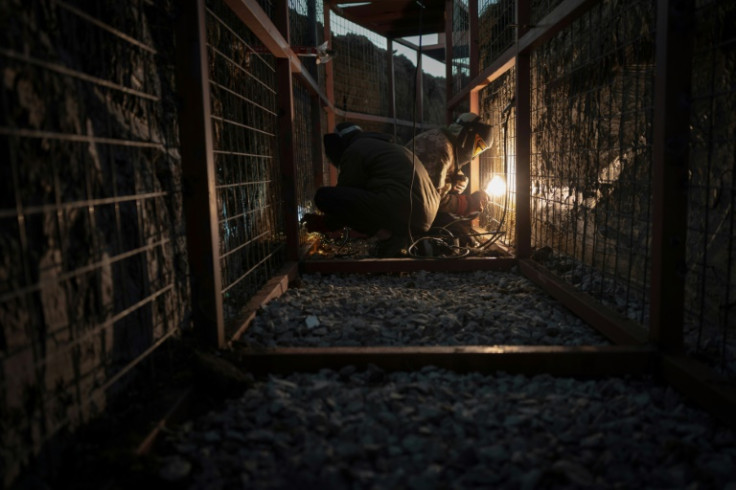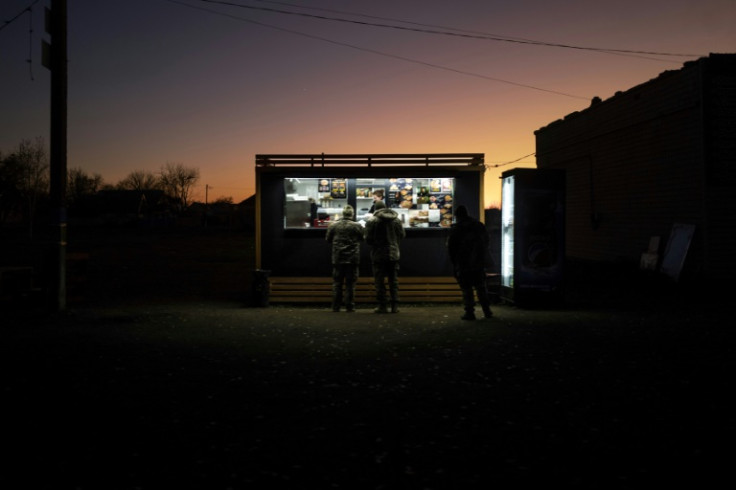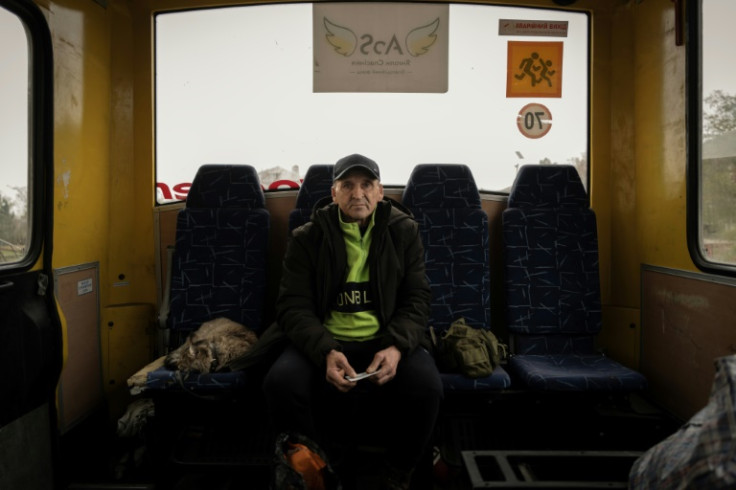
Months of fighting on the Ukrainian front have not taken away Kostya's sense of humour -- even when it comes to the topic of Donald Trump.
Fears are high across Ukraine that the US president-elect, who claimed he would secure a ceasefire within 24 hours of coming to office, will push Kyiv into accepting peace on Russia's terms.
Soldiers like Kostya, fighting a slow but relentless Russian advance in the eastern Donbas region, are sceptical of a quick deal between Kyiv and Moscow.
"January 20 is Trump's inauguration. January 21 is the end of the war. On January 22, I plan to celebrate my birthday at home," Kostya said, sarcastically.
The 23-year-old was enjoying some respite with a few comrades -- eating a kebab he called "disgusting" -- a few kilometres from the city of Kurakhove under attack from Russian forces.
"A quick peace is possible," Kostya continued, more seriously.
"But only at our expense," interjected Valerya, a 22-year-old who serves with him.
Trump has not provided any details on how he might bring the warring sides to the negotiating table, let alone strike a deal that both would accept.
And in contrast to President Joe Biden, he has not called for Ukrainian victory and has repeatedly criticised American military aid to Kyiv.
The promise of a quick end to the fighting has not brought reassurance to Ukrainian soldiers, exhausted by nearly three years of combat against Russian troops.
Kostya said even a hypothetical truce would not stop Russia.
"We would get only a short-term peace, the war will continue," he said.
He already felt that Western allies were leaving Ukraine to fend for itself against a much more powerful enemy.
"We are being abandoned now. It doesn't matter if Trump is president or not. They will make a deal with Russia again. We will be absorbed," he said.
Russia's offensive accelerated in November, when its troops advanced over 725 square kilometres (280 square miles) of Ukrainian territory, mainly in the eastern Donetsk region, according to an AFP analysis of data from the US Institute for the Study of War.
That was the largest monthly gain for Moscow since March 2022, with its forces pushing in multiple directions, including near the logistics hub of Pokrovsk in the Donetsk region.
"We are losing," said Volodymyr, posted near the coal-mining city.
He is 23, but looks much older after months of gruelling fighting.
"Soldiers have had enough. Everyone has families, relatives... Everyone wants to go home," he said in a sombre voice.
But he also agreed that the prospects for a quick peace were bleak.
"Russia will attack again, whatever happens."
Many shared that opinion, including a former history teacher turned soldier who goes by the call-sign of French author Alexandre Dumas.
The 44-year-old said he did not care much about Trump's election and did not believe "in sweet dreams of peace in 24 hours".
"As soon as they declare a ceasefire, I'm leaving this country. Because they'll come to us, rearmed, in five to 10 years," he said.
"Of course everyone is exhausted, but we have to keep fighting," he said, adding that civilians were the ones pushing for an agreement.
But Yuri, a civilian who had just fled the city of Toretsk, was also firmly against a truce.
Sitting in an evacuation bus with his cat, the 56-year-old former miner was staring into space.
His house was recently bombed and he recalled having to "dig, dig and dig some more" to try, in vain, to retrieve the body of his son.
He took calls for a quick peace as an insult.
"I don't believe it. Putin will go right to the end of Ukraine," he said.









